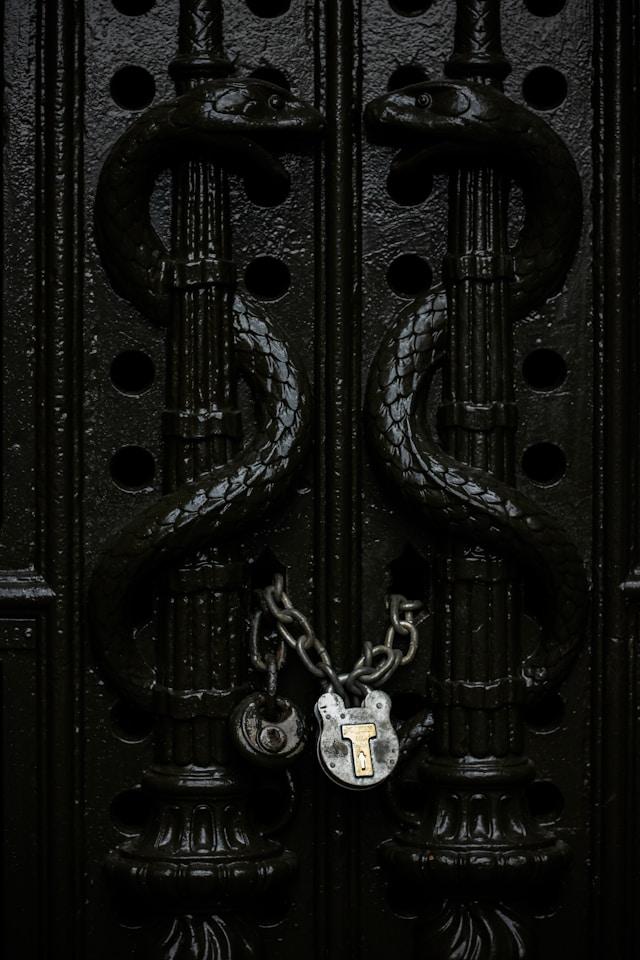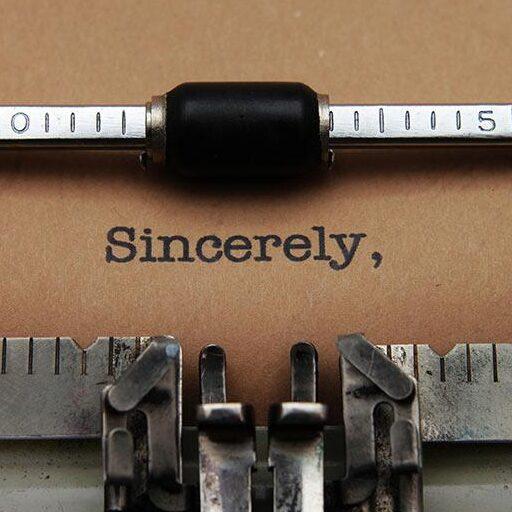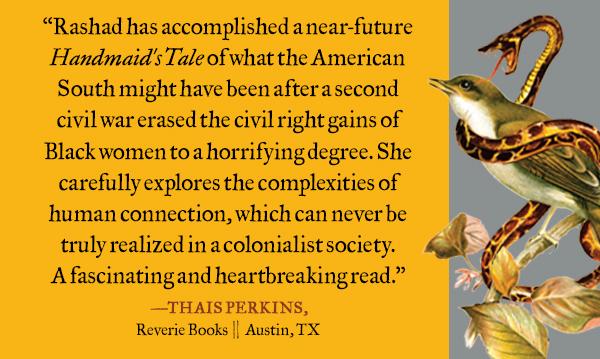The Power of Discomfort: Unraveling the Antagonist in The Blueprint

Edward Howard (Unsplash)
My fascination with dystopian and Southern Gothic genres stems from an interest in the complexities of human nature. The Blueprint delves into positions of power: who holds it and why they believe they deserve it. The story follows Solenne as she comes of age in an alternate, oppressive United States governed by an authoritarian regime with totalitarian leanings.
Though the world Solenne lives in makes for a harrowing journey, this isn’t 1984 where the dissection of society is the focus. In The Blueprint, society serves as a backdrop for one woman navigating hypocrisy on her quest for autonomy. She draws strength from the story of her ancestor, a cunning enslaved concubine in 1800s Louisiana.
While the women’s psychological journey is at the forefront, The Blueprint also tells the story of Bastien Martin, a government official entwined in Solenne’s life. In this post, I shine a spotlight on Bastien. A story’s potency lies in its antagonist. Crafting these characters is like wandering through a dark forest and finding an abandoned clapboard house, door ajar. “Don’t,” your gut says. Some won’t, but I’ve never heeded that warning. I’m the first on the porch, cringing, flashlight in hand.
The Complexity of Human Nature
I find the truth about humanity in the dark—the paradoxes, absurdities, and hypocrisies. Because of this, antagonists are often the first to take form in my notes. What awful desire maps their brains? Who are they willing to put through hell to see it realized? Their moral compass is damaged, but even if it wasn’t, they wouldn’t be able to make sense of it. That fascinates me.
I admire Marlon James for his ability to humanize his antagonists, portraying them as multidimensional individuals. This inspired my commitment to writing Bastien as a whole person. However disturbing, when I swept my flashlight over him, I would see him through Solenne’s eyes—her fractured, contradictory understanding of him. I had to, or I had no story, or worse, a defanged plot carried out by emotionally vapid characters.
So, I decided to love him.
I would love him like my sister-in-law loved Pawpaw, her racist grandfather.
I would love him like a mother loves her son who is in jail for murder.
I would understand his position enough to articulate it to the reader. He needed to feel familiar. Possible. I wanted the reader to question him long after the story ended. Why this child? What happened to skew your perception of good and evil? Is redemption a possibility? Answers are found by fumbling in the dark with your eyes closed, feeling the shape of monsters—both literal and metaphorical.
Creating Complex Characters
One of the most challenging aspects of writing The Blueprint was crafting characters with depth and nuance. Bastien is a recombination of historical figures, overlaid with characteristics of people I’ve known. He’s unsettling because his core mirrors reality.
Bastien’s character is a study in contrasts. On the surface, he embodies the dystopian regime’s ideals, enforcing rules and maintaining order. Yet, beneath this exterior lies a man shaped by his past and his constant fear of losing his tenuous grasp on Solenne’s mind as she matures. If she sees good in him, he can continue believing the regime’s ideals are beneficial and that he is inherently a good person in a dark world. This duality makes him a compelling antagonist whose motivations are as complex as they are disturbing.
Bastien’s Character: A Deeper Look
The real conundrum is Bastien’s lack of self-awareness. He sees himself as a benevolent patriarch, believing his knowledge, skills, and privilege justify governing others, particularly Solenne. What a moral person would view as grooming and abuse, he sees as love, as freedom by proxy—a balancing of the hierarchy without dismantling a system he benefits from. This self-perception creates a chilling juxtaposition between his actions and his belief that he is acting in others’ best interests.
New Orleans and its bars and parties and the wards of nonrestricted women bothered him. I would never become like DoS in Louisiana, Bastien said. They weren’t taken care of the way he took care of me. They were dressed and jeweled and used by men for their bodies until they were confused, empty, broken. (p. 36)
“You have nothing in common with those women, so you don’t need to worry. I’ve always taken care of you, haven’t I?” (p. 38)
Bastien cannot see the cruelty and implied violence in setting one apart from their primary group, drawing them close to their source of subjugation, and forcing them to witness all they cannot change. He flirts with understanding but shrinks away. Sympathizing with Solenne’s position or shifting power would undermine all he knows. Who is he, if not someone who stands in power above others?
“Beliefs don’t exist on either side of a spectrum. It’s never that neat or simple in our country.” He frowned like the criticism-adjacent words tasted bitter. “And still, this country is better than it was when it was the United States.” (p. 104)
For half the book, Solenne perceives him with a child’s naivety, longing, and confusion. The reader sees the manipulation and emotional abuse long before Solenne can. They recognize his insistence on drawing her into arguments and battles designed for her to lose. What she views as a beautiful piece of jewelry given to her by him, the reader sees as the same jewelry he adorned his beloved dogs with. “I swear it,” becomes a signal to the reader of his deceit—promises Solenne lacks the experience to see through. From cover to cover, he gives a little, which looks like a lot to a child, the desperate, the people who have nothing but hope. This allows him to maintain complete control. Sound familiar? This page is torn from Henri Rousseau’s blueprint, whose actions set the stage thematically in The Blueprint’s opening and continue as a throughline.
Said I was cruel and selfish and no matter what he did for me, I always wanted more. Said I was a product of my upbringing, brutal and self-centered, like my mother and grandmothers. (p. 63)
“You don’t know how good you have it. You sit in rooms few women enter. I’ve taken you places few Black women have gone, and still, that isn’t enough for you.” (p. 222)
At every turn, he demands that her mind and body conform to his expectations. Solenne, as a whole person, Solenne as a child, is inconvenient for him. Innocence is seized and shaken scene by scene. Like the society they inhabit, he shoves her toward premature maturity, both mentally and sexually.
“You shouldn’t press that way. It makes you look weak. Like a child.” (p. 162)
“My God, I forget you’re so young. Sometimes I don’t remember.” (p.227)
In a few scenes, he expresses regret for burying the child Solenne longs to be, but it is fleeting. She must only exist as an extension of him, property, without emotions that challenge his control. And yet, he acknowledges that one day, after being immersed in a world of privilege that can never include her, Solenne will question, rebel, and resist. He methodically preempts this with the use of we—a mantra.
“This is between Solenne and me. We don’t need outside interference. We know what we want.” (p.240)
“It’s tonight or not at all. We’ll talk ourselves out of it. That’s not what we want, do we?” (p.138)
“We’re not like other people, are we?” (p.161)
Like power, love is shaped through control and manipulation. For Bastien, this is his world—this is his love story.
The Allure of Power
One of the central themes explored through Bastien is misogyny as a social construct. The society in The Blueprint is designed to reinforce the social and political dynamics that enable men to maintain their position of power over women. His rise within the regime is marked by ethical compromises and ruthless decisions that negatively impact Solenne. He is unable to consider this. The hardships he has endured are the plank in his eye. Indeed, he has sacrificed in life, primarily his own childhood. This truth prompts readers to consider why he believes he has earned the right to govern, rather than simply achieving based on blood or affiliation.
“Many want what I’ve accomplished, but they’re unwilling to sacrifice the blood and sweat I’ve sacrificed. They deserve nothing,” Bastien said when worknights merged into a slow dawn. “I was given no advantages. No head starts.” (p. 32)
But…wasn’t he? In the grand tradition of those who govern, his family is wealthy with decades of political standing. On the other hand, that family is marred by the pain death and war create. Whether you agree or disagree, Bastien’s worldview on work, loss, and sacrifice invites the reader to ponder the idea of privilege from the dominant perspective. Does experiencing loss and heartbreak diminish the idea of privilege?
Conclusion
Even in early drafts, I knew I wouldn’t veer into a redemptive arc for Bastien. This honors my perception of the difficulty in challenging deeply rooted beliefs. Like Pawpaw, most of us twine them around our hearts and go to the grave with them. I conspired against him. I imagined terrible ways he could die to satisfy my need for closure—I shot his plane down, forced him to sip poison from Joffrey’s cup, and smothered the life out of him. But that was too clean. Show me the places where life is so neat. I can’t find one.
In later drafts, it became less about Bastien and my authorial need for revenge and more about Solenne. Is death the only way she could experience freedom? What does it take for women to beat the monster that hides in the dark? I don’t have the answer, even in the world I created. Perhaps we find the answer in the darkened house just ahead through that thicket of trees. Maybe it lies in the eyes of the woman who stands on the weathered porch, flashlight in hand.
—–
In the next post in the character series, I’ll discuss Solenne or Henriette, Solenne’s ancestor whose story is the thematic glue that holds The Blueprint in place. Sign up for my newsletter to receive updates on blog posts.
You can also download my book club kit for discussion questions and an author Q&A.



